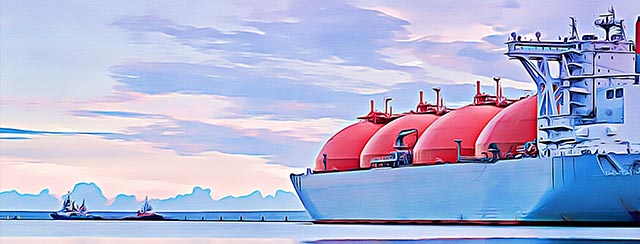Here is what happened. Nearly 50 days ago the government decided that the private sector was failing to come through on their promise of building a new processing terminal for Liquified Natural Gas (LNG) in the country. So what did the government do about it? They decided to commandeer the project and construct the terminal themselves.
At first glance, the move comes across very much as a government being tired of private sector inefficiencies and rolling up their sleeves to take matters into their own hands. However, as with most things, it is all a little more complicated than that.
Pakistan currently has more demand and capacity to transport LNG throughout the country than it is able to process. Essentially, we want LNG for domestic and industrial use, but do not have enough terminals to process it. This is part of what leads to gas shortages and has in these past few months of winter resulted in massive domestic gas load-shedding.
The plans to build a third LNG terminal have been in the works for years. In fact, when the incumbent government first came to power they had made tall claims of building five new terminals which would be operational within a few years. Those claims have been far from realised.
The government is currently pointing fingers at the backers of the two private sector companies who have been blamed for moving slowly on the project of LNG terminals. The private sector companies, in response, have said that they have been unable to get the project rolling in the first place precisely because they have been tangled up in the government’s bureaucratic red-tape. And according to sources in Tabeer energy, the government has made next to no progress in the nearly two months that have passed since it strong-armed control of the project out of private sector hands.

With ever growing demand and industrial requirements, the government is in a rush to make this happen. In a recent statement, energy minister Hammad Azhar has claimed that the LNG terminal would be operational by 2023. “The government is looking into setting up its own import facility by converting a portion of a state-owned liquefied petroleum gas terminal,” he said in an interview with Bloomberg. The content in this publication is expensive to produce. But unlike other journalistic outfits, business publications have to cover the very organizations that directly give them advertisements. Hence, this large source of revenue, which is the lifeblood of other media houses, is severely compromised on account of Profit’s no-compromise policy when it comes to our reporting. No wonder, Profit has lost multiple ad deals, worth tens of millions of rupees, due to stories that held big businesses to account. Hence, for our work to continue unfettered, it must be supported by discerning readers who know the value of quality business journalism, not just for the economy but for the society as a whole.To read the full article, subscribe and support independent business journalism in Pakistan










i think thats a good decision good luck for the next future betterment
Here is what happened. Nearly 50 days ago the government decided that the private sector was failing to come through on their promise of building a new processing terminal for Liquified Natural Gas (LNG) in the country. So what did the government do about it? They decided to commandeer the project and construct the terminal themselves.
Best project for the prosperity of Pakistan
type of construction cost estimate
Hkiyf to the
Hjk to the next generation
Hksj
Ploysv
Hough goes to
Hio
Fjiuy
Giiy to the next generation
Shui singles love
Hii Daniel I hope
Joint venture
Loih